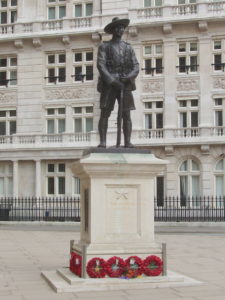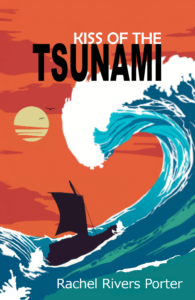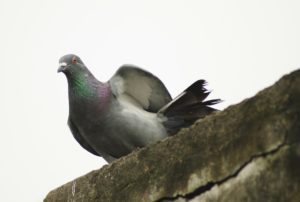It was one of those lovely spring walks in the country. We were following a footpath into a field when our dog froze. Facing her – and us – were about twenty large bullocks. And they were moving rather too quickly in our direction. Our brave (or crazy) hound darted towards them and barked. Bad move. Two of the larger beasts tried to cannon into her. She sidestepped, dodging them, but her rugby player tactics only enraged them. Several tonnes of prime steak powered towards us.
An image flashed into my head from a nature programme: facing lions in the jungle. I held up my hand in a stop position and tried that ‘stare into their eyes!’ tactic. And just in case they could understand English, I shouted, “Stop! Go back!”
They didn’t.
Feeling a little nervous, I took a pace forward and eyeballed the nearest beast. There was a stand-off, with me saying, “Go away!” several times. He pawed the ground, then retreated.
Unfortunately, there were nineteen other bullocks and they weren’t going anywhere. Except towards our dog. She looked at me, not knowing what to do, so I quickly put her on the lead. Not the wisest move. The herd barged into each other trying to find the best position to attack. I unclipped the lead: it was every man for himself now — or every woman and her dog!
Fifty metres to the edge of the field. We crept forwards, or should I say, sideways, keeping a wary eye on the herd. All the time I was repeating my mantra: “Stop! Go away!” But they were closing ranks, getting ready to charge.
In desperation, my husband whipped off his waxed jacket and started flapping it. Oh no, I thought, they’ll think he’s a matador and get the wrong idea. But thankfully British bulls don’t seem to know Spanish customs — their gaze remained fixed on our frantic dog. She looked so small and vulnerable in comparison to their bulk. Suddenly, she made a dash for freedom. Bullocks crowded in from two directions, trying to block her.
“Get behind me!” whispered my husband. Then he strode towards them flapping his waxed jacket. “Shoo, get away!”
The jacket distracted the beasts just long enough for me to slip under their gaze and run towards the stile. Our dog sped past, squeezing through a gap in the fence. When I looked back, this bat-like creature was flying towards us. I’m not sure if Batman vaulted the fence or flew over, but it didn’t matter: We were safe!
On our way back home, we met a friend who told us that a lady had been rammed into by the frisky bullocks. This is one path which I won’t be using again!



 In the days before weather forecasts, the internet and plastic bags, it was said that a storm follows a mackerel sky. Seeing clouds like mare’s tails or flocks of sheep, sailors would lower their sails knowing that in a few hours, they would encounter a storm.
In the days before weather forecasts, the internet and plastic bags, it was said that a storm follows a mackerel sky. Seeing clouds like mare’s tails or flocks of sheep, sailors would lower their sails knowing that in a few hours, they would encounter a storm.


 Some people may be able to write almost anywhere, and others may have a special place where they are free from disruptions.
Some people may be able to write almost anywhere, and others may have a special place where they are free from disruptions.